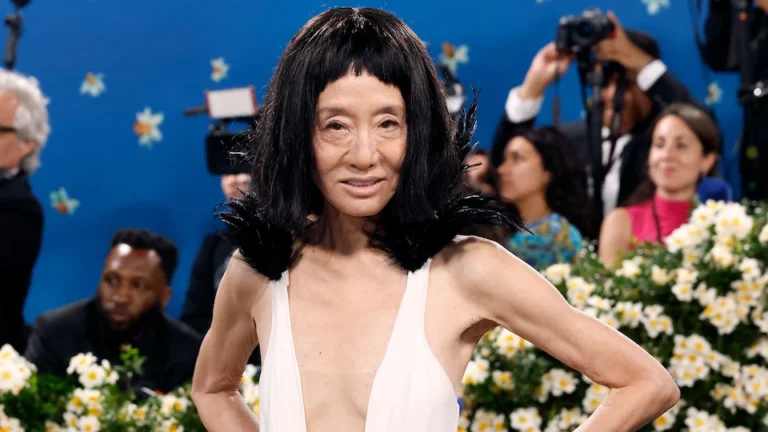
[ad_1]
Introduction
The landscape of hip-hop has always been a canvas of creativity, resilience, and cultural significance. In a genre that has faced its share of skepticism and challenges over the decades, few events resonate as deeply as Big Daddy Kane’s Grammy victory. This win not only honors the artist’s innovative contributions but also stands as a monumental moment for hip-hop culture. This article delves into Big Daddy Kane’s history, his groundbreaking contributions, the significance of his Grammy win, and its broader implications for the hip-hop community.
Who is Big Daddy Kane?
The Early Years
Born Antonio Hardy on September 10, 1969, in Brooklyn, New York, Big Daddy Kane emerged from the borough’s vibrant hip-hop scene. Growing up, he was influenced by the burgeoning art form that mixed poetry, rhythm, and social commentary. His early passion for music was further catalyzed by his exposure to different genres and artists.
Breakthrough and Style
In 1988, Kane made a significant impact with his debut album, Long Live the Kane, which featured classics like “Ain’t No Half-Steppin'” and “Raw.” With his intricate rhyme schemes, charismatic delivery, and suave persona, Big Daddy Kane set a new standard for rap artists. His style blended elements of jazz, soul, and funk while incorporating poetic lyrics that transcended the typical narrative of hip-hop.
The Night of the Grammy Awards
A Historical Context
Big Daddy Kane’s Grammy victory is not just a personal achievement; it is rooted in a complex history. The Grammys have often been criticized for their treatment of hip-hop, particularly regarding the marginalization of rap artists in mainstream award categories. In this context, Kane’s recognition is noteworthy as it underscores a shifting paradigm within the awards landscape.
The Award Ceremony
The Grammy Awards ceremony where Kane won was filled with emotional and pivotal moments reflecting the power of hip-hop. With performances that showcased both the genre’s evolution and its roots, the event was a celebration of cultural heritage. Fans, artists, and critics alike viewed Kane’s win as a statement that hip-hop had finally received the accolades it deserved.
Big Daddy Kane’s Cultural Impact
Pioneering Rap Lyrics
Big Daddy Kane is often celebrated for his lyrical prowess. His ability to paint vivid pictures through his words has influenced countless artists. Lyrics that touch on themes of love, struggle, and triumph resonate with listeners, many of whom see their lives reflected in his narratives.
Fashion and Image
Kane was also instrumental in shaping hip-hop fashion. Known for his slick hairstyles and dapper attire, he elevated the image of rappers, blending high fashion and street culture. This contributed to the evolution of rap not just as a musical genre but as a lifestyle that permeated various aspects of society.
Community Engagement
Beyond music, Kane has been dedicated to community engagement and activism. He has used his platform to address various social issues, from education to violence, proving that hip-hop can be both a medium for entertainment and a powerful tool for change.
The Significance of the Grammy Victory
Recognition of Hip-Hop’s Evolution
Big Daddy Kane’s Grammy win can be viewed as symbolic of hip-hop’s acknowledgment in the broader music industry. It signifies that the genre, which has often been marginalized, is now being embraced as a legitimate and vital part of the musical tapestry.
A Platform for Future Artists
Kane’s victory serves as an inspiration for emerging rappers and hip-hop artists. It sends a message that hard work, creativity, and authenticity can lead to recognition and success, regardless of genre boundaries. Big Daddy Kane’s win can motivate younger artists to stay true to their roots while seeking recognition on prestigious platforms.
Bridging Generational Gaps
The significance of Kane’s win transcends immediate recognition. It bridges generational divides between longtime hip-hop aficionados and new listeners. By celebrating Kane’s contributions, the Grammy Awards highlighted the importance of honoring pioneers and laying the groundwork for future generations.
Big Daddy Kane’s Legacy
Influence on Artists
Big Daddy Kane’s influence can be traced through the work of numerous artists who followed in his footsteps. From Jay-Z to Nas, microphones across the world bear the imprint of Kane’s innovative style. His mastery of flow and lyrical complexity can be seen echoed in contemporary lyrics, illustrating the lasting impact of his artistry.
Contributions to Music and the Industry
Kane’s contributions extend beyond his music. He’s been involved in various collaborations that span genres, bringing attention to how hip-hop can intersect with R&B, soul, jazz, and reggae. This crossover appeal has enriched the musical landscape, inviting diversity in sounds and styles.
Educational Initiatives
In recent years, Kane has been involved in programs designed to educate the youth about the history of hip-hop and its roots. These initiatives aim to enlighten young individuals on the cultural significance of rap music, the importance of music as a form of expression, and the impact of the genre on society.
The Broader Implications of the Grammy Victory
A Cultural Shift
Big Daddy Kane’s Grammy victory reflects a broader cultural shift that positions hip-hop as more than just entertainment—it’s a powerful force influencing society, politics, and culture. The acknowledgment of Kane serves as a reminder that hip-hop is a vehicle for storytelling, identity, and cultural expression.
Addressing Systemic Issues
Despite the victory, there are still systemic issues within the music industry that need addressing. While Kane’s win is a positive sign, it opens up dialogues about the treatment of artists of color and the need for greater representation in key industry decision-making roles. The accomplishments of artists like Kane become pivotal in advocating for equitable treatment and diverse representation.
The Future of Hip-Hop and Awards Recognition
Navigating the Evolving Landscape
The landscape of hip-hop continues to evolve, and with it, so do its artists and the genres they incorporate. The success of versatile artists who blend hip-hop with other genres indicates a bright future for the genre. As the industry embraces collaborations and cross-genre appeal, awards recognition is likely to follow suit.
Mentorship and Support for Emerging Artists
For the future of music, mentorship will play a central role. Established artists like Big Daddy Kane serve as mentors to the next generation, sharing not only their knowledge of the craft but also insights into navigating the commercial side of the industry.
Conclusion
Big Daddy Kane’s Grammy victory marks a pivotal moment in the intersection of music and culture. It stands as a testament to decades of influence, innovation, and resilience in hip-hop. More than just a win for Kane, it is a celebration of hip-hop’s contributions to the music industry and society as a whole.
As we reflect on this remarkable achievement, it becomes clear that Kane’s legacy extends far beyond the stage. It challenges us to recognize the profound effects of hip-hop on our culture and to continue celebrating its rich history while looking toward an even brighter future.
FAQs
Q1: Why is Big Daddy Kane’s Grammy victory significant?
Big Daddy Kane’s Grammy victory is significant as it represents a crucial acknowledgment of hip-hop’s evolution and importance within the music landscape. It serves as recognition for the genre that has historically faced marginalization.
Q2: What impact has Big Daddy Kane had on hip-hop culture?
Big Daddy Kane has had a profound impact on hip-hop culture through his lyrical creativity, fashion influence, and community engagement efforts. He paved the way for future artists, showcasing the genre’s potential for artistry and expression.
Q3: How does Kane’s victory inspire future artists?
Kane’s Grammy win serves as inspiration for emerging artists by illustrating that hard work and authenticity can lead to mainstream recognition. It encourages them to remain true to their artistic vision while striving for success.
Q4: What systemic issues remain in the music industry regarding hip-hop?
Despite the successes like Kane’s Grammy win, systemic issues regarding representation and treatment of artists of color in the music industry still exist. Continuous dialogue is necessary to address these challenges effectively.
Q5: How has hip-hop evolved over the years?
Hip-hop has evolved significantly in terms of musical style, lyrical themes, and cultural representation. It has increasingly blended with other genres and addressed a wider range of social and political issues.
Q6: What are future trends in hip-hop based on the current landscape?
The future of hip-hop is likely to see more cross-genre collaborations, increased focus on mental health and social issues, and continued growth in global influence as artists expand their reach worldwide.
[ad_2]






